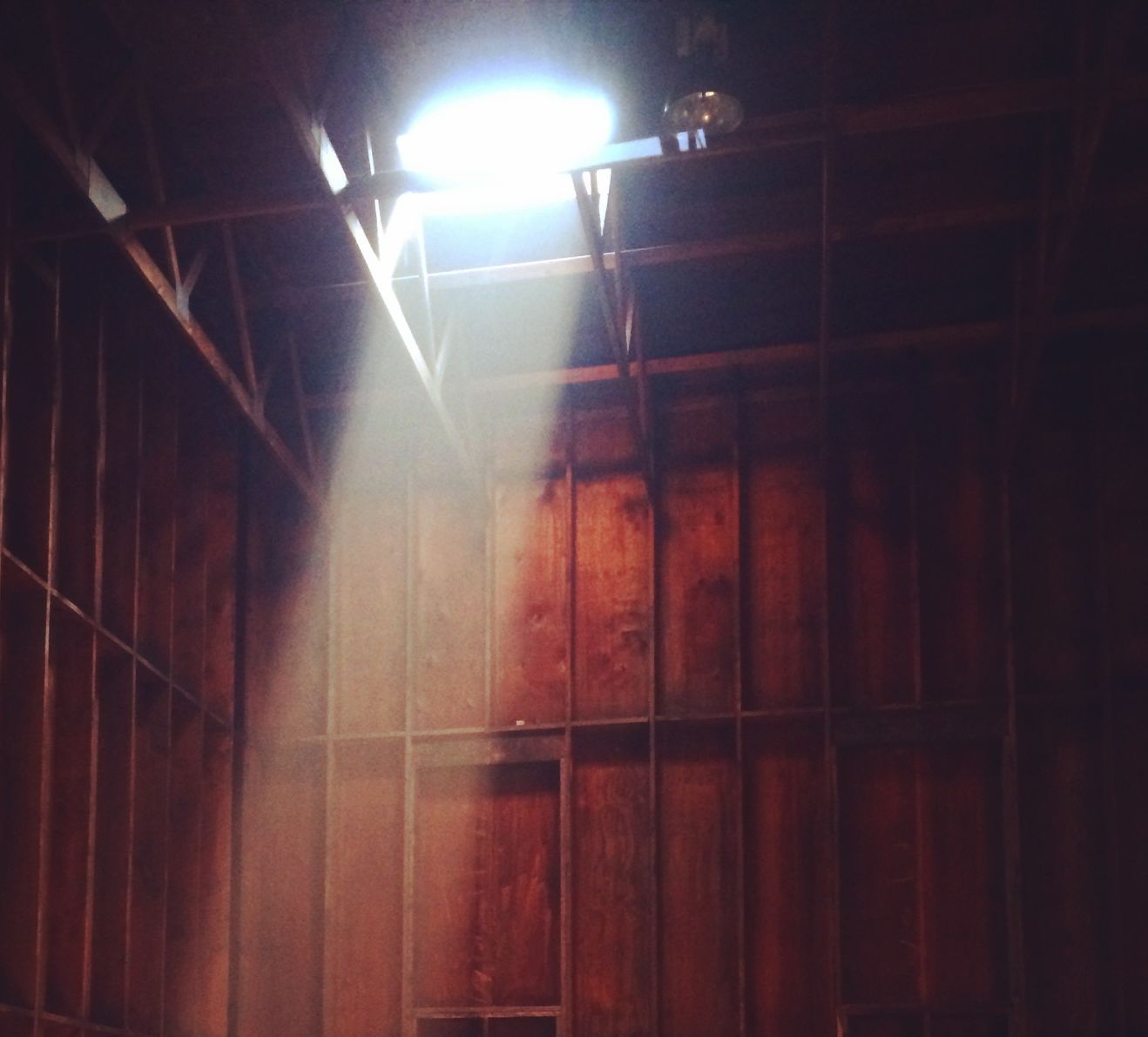Pandora's Box Meets Alice in Wonderland at Shaking the Tree Theatre
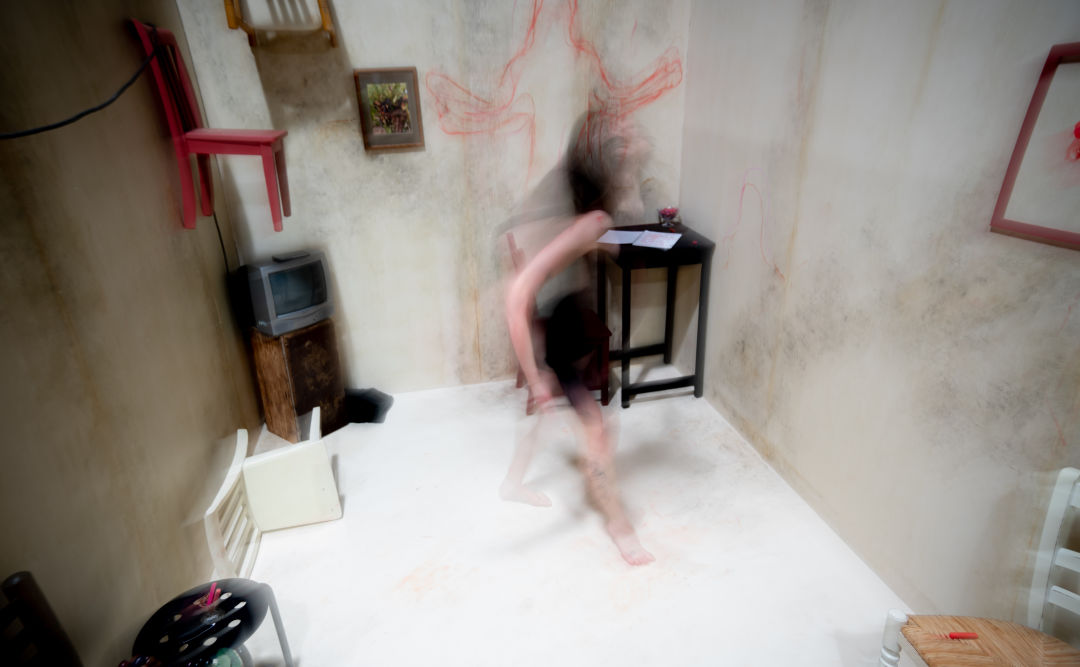
Performer Claire Aldridge rehearsing "The Grape," the only dance piece in Forbidden Fruit.
Image: Rick Liu
Led by curiosity, Eve cannot help but take the forbidden fruit, Alice will always chase the white rabbit, and Pandora will always open the box, says Samantha Van Der Merwe, the artistic director at Shaking the Tree Theatre.
If you discovered a mysterious door with secrets beyond it, would you also be too curious to resist?
“You will always open the door to see what’s in there, right?” Van Der Merwe says. “But do these kinds of stories and these secrets need to remain hidden behind closed doors? That is the question.”
Crafted as part-installation, part-performance, Shaking the Tree’s show Forbidden Fruit, which opens on March 4, invites audiences to embrace their curiosity as they step inside eight different installation rooms over a 90-minute period. Each room houses its own story and struggle—but all bear crucial (though perhaps uncomfortable) truths.
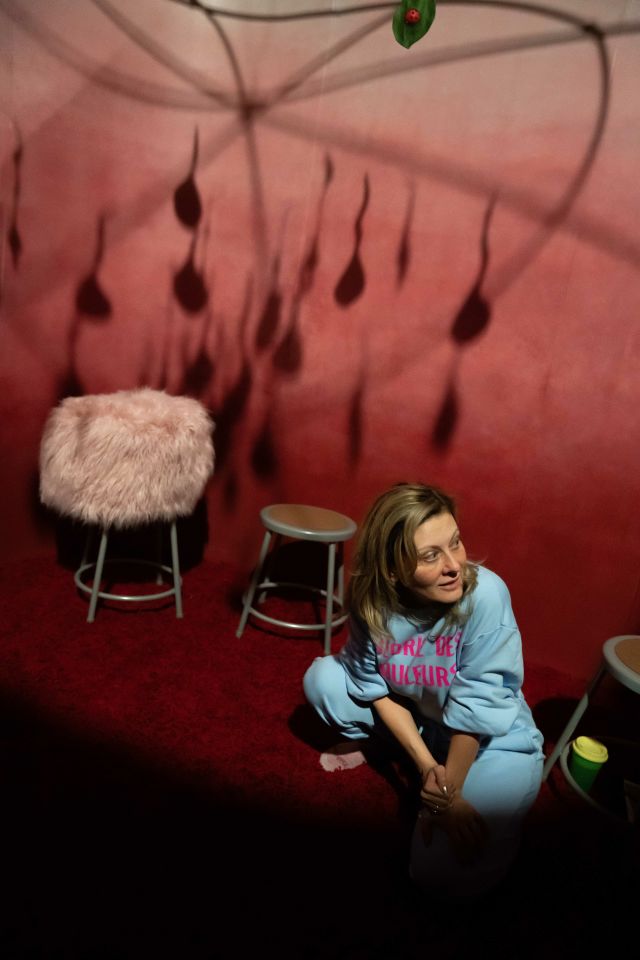
Val Landrum rehearses The Fig, written by E.M. Lewis.
Image: Rick Liu
On the other side of the door, audience members will engage with eight installation performances, each eight minutes long, including the moment when Persephone parts with the Underworld; a verdant wild banana grove haunted by Nang Tani, a spirit of Thai folklore; and the ripe inside of a fig where a wasp has burrowed, a metaphor that playwright E. M. Lewis uses to highlight the experience of navigating middle age and menopause.
In one of the installations, titled "The Apple," playwright Michelle Ruiz Keil and performer Sofia Marks explore the patriarchal sexualization of young girls. The room serves as a classroom where audiences learn from different korai—meaning “young women” in ancient Greek—such as Britney Spears, Brooke Shields, Biblical Eve, and the Aztec goddess Xochiquetzal.
As she developed the story, Ruiz Keil says she went down a “Brooke Shields rabbit hole,” reflecting on the impact of a controversial 1980 Calvin Klein jeans ad with Brooke Shields. The ad sparked uproar at its “sexually suggestive” depiction of then 15-year-old Shields.
“Everyone was talking about it,” recalls Ruiz Keil, who was a teenager when the ad came out. She began looking into Shields’s cultural influence as a child star, which led her to Spears and to Traci Lords, who began her acting career by starring in adult films when she was just 15 years old.
Ruiz Keil notes how the media commodifies and exploits the sexuality of young women, particularly Black and brown girls. “We also talk about how the experience of the korai is complicated when you start to add marginality,” she says. “It is even more complicated to escape.”
At an initial rehearsal for "The Apple, Ruiz Keil says Marks brought a dog-eared copy of Gloria Anzaldúa's Borderlands/La Frontera: The New Mestiza, which served as a jumping-off point as they developed the piece. In the book, Anzaldúa discusses liminality, or nepantla—a Nahuatl word for “between” or “betweenness”—to describe the Mexican American experience of living in between cultures and identities, something Ruiz Keil, who is Mexican, says she connected with personally. But it also offered a new way of looking at korai, who she says are in a similar position of existing between adolescence and adulthood. “You’re so liminal [at that age], and yet there are so many projections being put upon you.”
Ruiz Keil says the performance also uses archetypal images that audiences will be able to recognize: the schoolgirl outfit from Spears’s music video for “...Baby One More Time” and the heart-shaped sunglasses pictured on the Lolita movie poster from 1962. “I want the audience to notice how girlhood has been kind of weaponized in our culture,” she says.
Rather than being observed, the performers take ownership of the rooms, Van Der Merwe says. “They all have something to say. And so, they're kind of putting it back on the audience of, like, what will you do with this [knowledge]?”
When Olivia Mathews, an alum of the Portland Experimental Theatre Ensemble's Institute for Contemporary Performance, signed onto the show, they picked the pomegranate, a fruit that carries childhood memories for Mathews. “My dad loved pomegranates and he would always buy a ton from the store the second they came in season.”
Without a script, Mathews says they jumped into "The Pomegranate" with movement and devised the piece in collaboration with Van Der Merwe.
"The Pomegranate" explores the myth of the Greek goddess Persephone, who returns to the earth each spring. Mathews pared down the story of Persephone to when she leaves the Underworld to be reunited with her mother, Demeter, above ground.
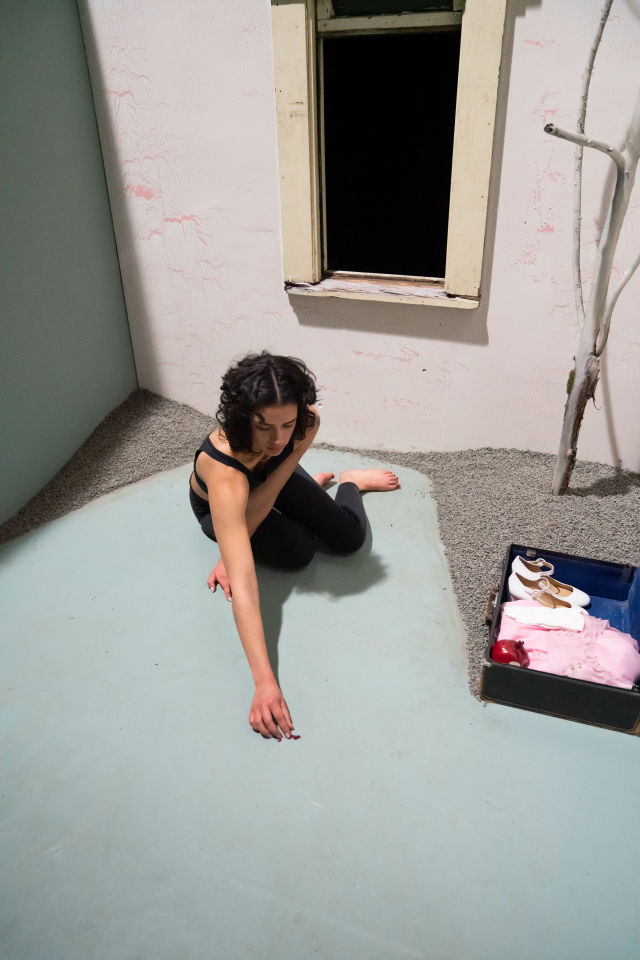
Olivia Mathews devised "The Pomegranate," a piece about Persephone’s return to the earth.
Image: Rick Liu
Persephone's struggle with coming and going is something that Mathews hopes resonates with audiences. "The Pomegranate" depicts a moment of tension, as Persephone is split between worlds, that is “a little bit more human and accessible,” Mathews says. “[We] brought it down to an eight-minute scale. A-foot-away-from-the-audience kind of scale.”
Mathews performs at close quarters—though they revealed that they may not be visible to the audience at first.
“I think ["The Pomegranate"] has a lot of exciting, unexpected elements. And then there are also a lot of deeply physical and guttural moments about it, too,” Mathews says.
With eight different stories, Forbidden Fruit has been an immensely collaborative process, bringing together a team of six playwrights, 12 performers, a choreographer, designers, painters, and builders.
Choreographer Amy Leona Haven says she worked closely with performer Claire Aldridge to bring "The Grape"—the sole dance-based piece in the show—to life.
Without spoiling too much about it, Leona Havin says the piece explores themes of decadence, humility, perseverance, and compassion. “And how the sweetest grapes can often be grown in the harshest climates,” she says.
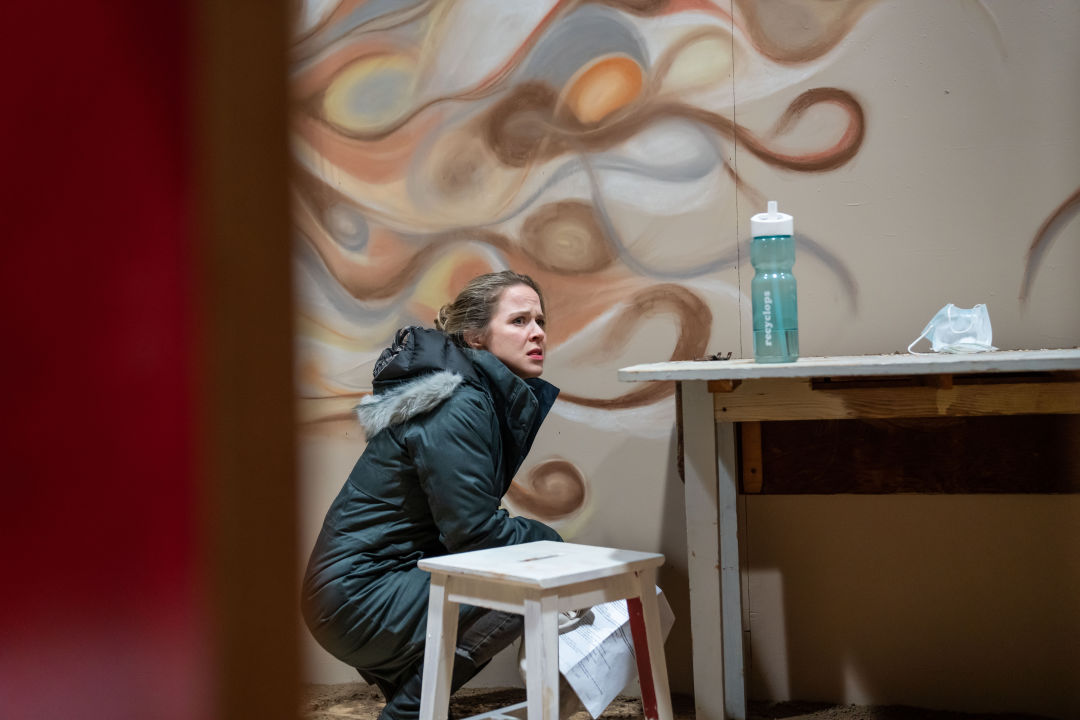
Actor Kailey Rhodes rehearses "The Wheat Berry."
Image: Rick Liu
There’s something for everyone, Mathews says of Forbidden Fruit. The show will run for five weeks and the actors will perform a total of 144 times, Mathews calculated. They admitted they are already exhausted—when Portland Monthly spoke to Mathews, it had been the day after the entire cast’s first rehearsal together—but they are nonetheless excited for the show and to see how audience members respond to the different rooms.
By the end of Forbidden Fruit, the audience essentially will have gone through “eight confessionals,” some of which touch on topics that may be uncomfortable to listen to, Van Der Merwe says. “But [for audiences] to bear witness and really listen, that’s all we want.”
“Once the box is opened, nothing can go back," she says. "It has to go out into the world."
Forbidden Fruit
7:30 p.m. Thu–Sat & 5 p.m. Sun, March 4–April 1 | Shaking the Tree, $5–33

